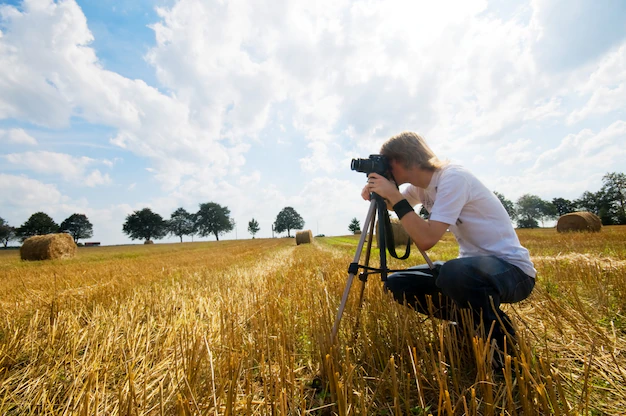- Specialized Field: Agricultural photography is a niche area of photography that focuses on capturing images related to agriculture, farming, and rural life. It requires a unique skill set and understanding of the agricultural industry.
- Knowledge of Agriculture: To excel as an agricultural photographer, it’s crucial to have a good understanding of farming practices, crops, livestock, and rural landscapes. This knowledge helps in capturing meaningful and accurate images that resonate with the target audience.
- Equipment and Technical Skills: Like any other professional photographer, an agricultural photographer needs to have a good understanding of photography equipment, including cameras, lenses, lighting, and editing software. They should be proficient in using these tools to capture high-quality images.
- Patience and Adaptability: Agriculture operates on its own schedule, often dictated by seasonal changes and weather conditions. As an agricultural photographer, you must be patient and adaptable to capture the perfect moments in various agricultural settings, such as fields, farms, or livestock barns.
- Creative Eye: Agricultural photography requires a creative eye to capture compelling images that tell stories about the beauty, challenges, and importance of agriculture. Finding unique angles, interesting compositions, and visually appealing details can make your work stand out.
- Safety Awareness: Working in agricultural environments comes with its own set of risks, such as working with large machinery, animals, or in adverse weather conditions. It’s important for agricultural photographers to prioritize safety and take necessary precautions while capturing images.
- Networking and Relationship Building: Building relationships with farmers, agricultural organizations, and industry professionals can open doors to unique opportunities and collaborations. Networking allows you to gain access to exclusive locations, events, and subjects for your photography.
- Marketing and Business Skills: To thrive as an agricultural photographer, it’s essential to have marketing and business skills. This involves creating a portfolio, promoting your work through various channels, negotiating contracts, managing finances, and delivering images to clients efficiently.
- Environmental and Sustainability Awareness: As an agricultural photographer, you’ll have the opportunity to shed light on sustainable farming practices, environmental conservation, and the importance of responsible agriculture. Being knowledgeable about these topics can help you create impactful visual narratives.
- Continuous Learning: The agricultural industry is constantly evolving, with new technologies, trends, and practices emerging. As a photographer in this field, it’s important to stay updated with the latest developments, attend workshops or conferences, and continuously learn and improve your skills to stay competitive.
Join 'Farmers Mag' WhatsApp Channel
Get the latest Farming news and tips delivered straight to your WhatsApp
CLICK HERE TO JOIN






